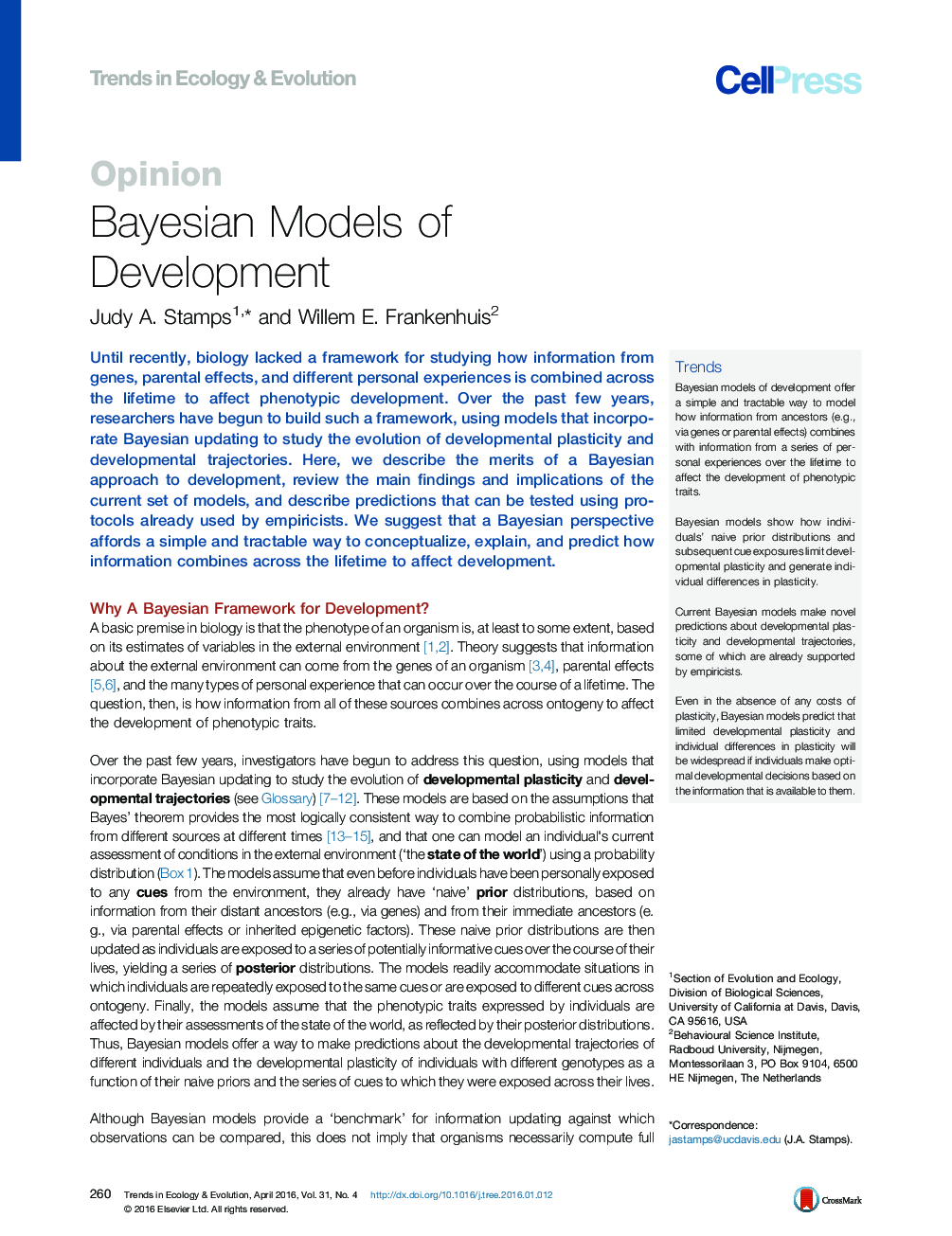| Article ID | Journal | Published Year | Pages | File Type |
|---|---|---|---|---|
| 142314 | Trends in Ecology & Evolution | 2016 | 9 Pages |
Until recently, biology lacked a framework for studying how information from genes, parental effects, and different personal experiences is combined across the lifetime to affect phenotypic development. Over the past few years, researchers have begun to build such a framework, using models that incorporate Bayesian updating to study the evolution of developmental plasticity and developmental trajectories. Here, we describe the merits of a Bayesian approach to development, review the main findings and implications of the current set of models, and describe predictions that can be tested using protocols already used by empiricists. We suggest that a Bayesian perspective affords a simple and tractable way to conceptualize, explain, and predict how information combines across the lifetime to affect development.
TrendsBayesian models of development offer a simple and tractable way to model how information from ancestors (e.g., via genes or parental effects) combines with information from a series of personal experiences over the lifetime to affect the development of phenotypic traits.Bayesian models show how individuals’ naive prior distributions and subsequent cue exposures limit developmental plasticity and generate individual differences in plasticity.Current Bayesian models make novel predictions about developmental plasticity and developmental trajectories, some of which are already supported by empiricists.Even in the absence of any costs of plasticity, Bayesian models predict that limited developmental plasticity and individual differences in plasticity will be widespread if individuals make optimal developmental decisions based on the information that is available to them.
